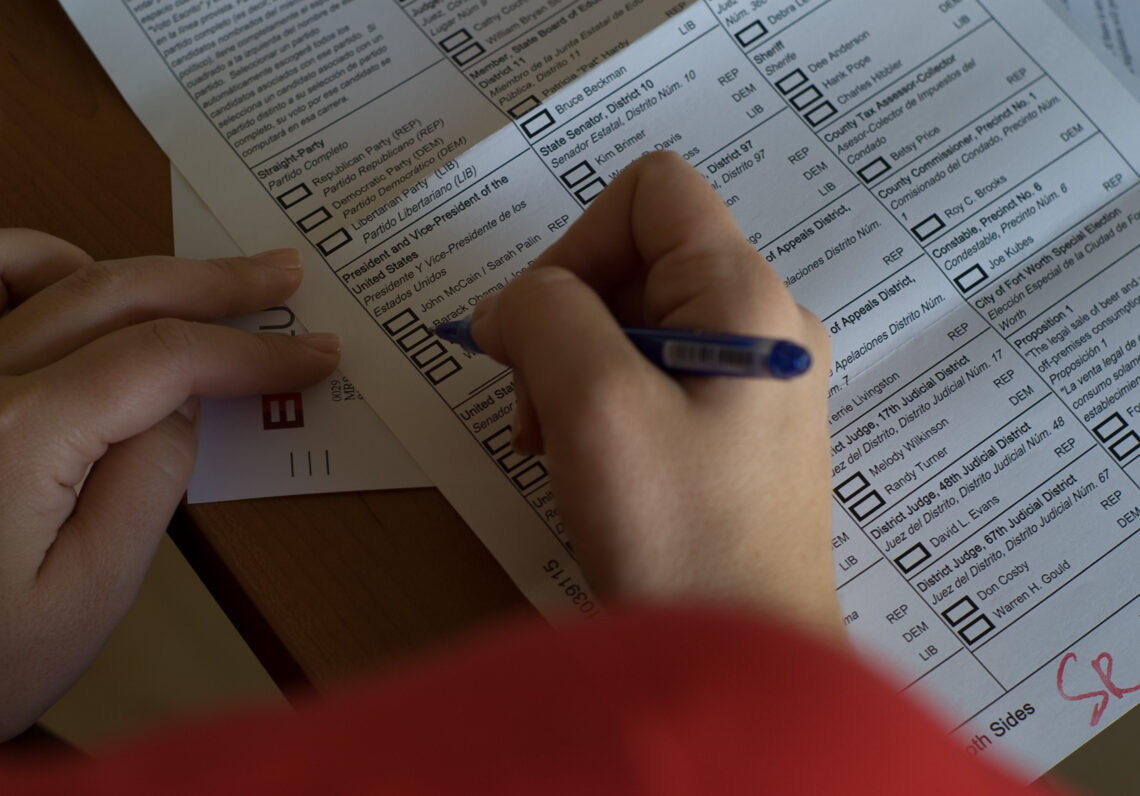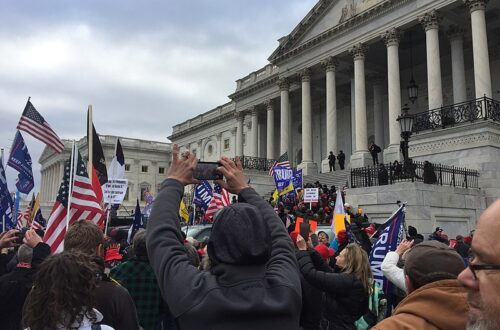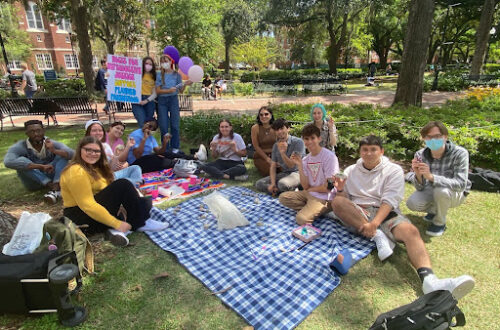In 2016 Latin America’s Walter Cronkite, Jorge Ramos, accurately prophesied that “the new rule in American politics is that no one can make it to the White House without the Hispanic vote.”
Of late, both campaigns seem to have caught on. They have notably increased their efforts to court Florida’s Latino vote by employing the de rigueur political strategy of pandering — hispandering.
However, both campaigns fail to understand the multidimensionality of Florida’s Latino community. The ignorance responsible for this comprehensive shortcoming is evident in the campaigns’ inabilities to produce policy platforms that appeal to Florida’s Latino electorate. In this case, as in most, pandering is merely posturing.
In lieu of addressing the struggles of the disaffected Latino community in Florida, Biden recently took to an overused technique to impress another minority voting bloc — using celebrities to increase his popularity.
Prior to addressing a crowd of Hispanics at a campaign event in Florida, Biden reminded his audience that a near-octogenarian, white male has no business trying his hand at reggaeton. In a cringe-worthy attempt at relatability, he awkwardly bobbed his head and smiled in attempt to match the rhythm of Luis Fonsi’s “Despacito.” Biden’s viral moment was received as an act of solidarity and amusement by Florida’s Latino community.
While the Latino vote tends to swing left nationally, Florida’s demographics make for a fiercely divided electorate. Biden must acknowledge that winning Florida requires more appeal than even “Despacito” can provide.
Unfortunately, Biden falls short where it matters most — his policy platform is particularly uninspiring for Latinos.
His policies are a product of 40 years of routinely turning a blind eye to corruption and human rights violations when convenient, funneling money into problematic militaries, and supporting trade agreements that promote natural resource extraction. Highlights of his Latin American foreign policy include: no plans to mitigate Venezuela’s worsening humanitarian crisis, no clear stance on Cuba, and no mention of the Caribbean and South American regional upheaval when Florida is home to the most ethnically diverse Latino population in the country.
Florida’s previously overlooked Latino electorate is now soliciting merited panic for the Biden campaign as he desperately seeks a connection with these voters.
Conversely, Trump has taken a more aggressive and manipulative approach by capitalizing on the impetuous nature of fear. Florida boasts the highest concentration of Cubans, Venezuelans and Nicaraguans in the country, most of whom reside in south Florida and are foreign-born exiles.
Their vote is largely red and staunchly supportive of President Trump’s verbal attacks on Cuba and Venezuela. Throughout his presidency, Trump has routinely pandered to these anti-communist sentiments with talks of tightening sanctions on Cuba and denouncing Venezuela’s Maduro.
Additionally, Trump relies on Florida’s conservative icon and senator, Marco Rubio, as an adviser on Latin America. Rubio is popular among south Florida Latinos because of his Cuban heritage and hardline stances on Cuba and Venezuela.
The shared trauma of millions of displaced Latinos from countries like Cuba, Venezuela and Nicaragua breeds a dualist mindset that favors Trump: candidates are either socialist or anti-socialist. In this election, Biden defaults as the former.
The contrivance of this dangerously ill-informed narrative of Biden is, ironically, the product of merciless propaganda by Trump’s “fake news” campaign.
An alarming number of Latino voters now refer to Biden, a ripened centrist, as un Comunista or un extremista. However fallacious and satirical this narrative seems to the millions of displaced Cubans, Venezuelans and Nicaraguans who all fled communist regimes, this triggers deep-rooted convictions that translate into unwavering support for Trump.
Aside from exploiting the vulnerabilities of these displaced refugees and exiles, Trump has largely ignored and exacerbated the struggles Latinos face domestically.
He publicly demonized Central American immigrants, compromised the naturalization process (legal immigration), refused to reinstate “Wet Foot, Dry Foot,” which empowered its beneficiaries in large part to elect Trump, and most recently, threatened the visa status of international college students.
Among other travesties is Trump’s slap-to-the-face Venezuelan foreign policy. Unbeknownst to many Latino voters is Trump’s strategy to suppress his displaced supporters into perpetual fear; he plans to avoid resolve in Venezuela and subject Maduro’s dictatorship to political expediency. According to Trump’s former National Security Advisor, the strategy is to “vacillate, bluster, repeat.”
Latino voters under the impression that Trump champions Venezuela’s fight for democracy will be disappointed to hear that he has done nothing other than verbal acknowledgment of the crisis. His performative anti-Communism and an overdue Latino appointment at the federal level are not real solutions.
Trump surpasses his opponent in failing the Latino community by blatantly promoting anti-Hispanic rhetoric and employing a morally dubious foreign policy that disrupts an entire region as well as the disaffected refugees and exiles that he now governs. Trump’s fear-mongering and strategic pandering successfully lured conservative Latinos into casting a vote against their interests in the previous election, and a similar outcome is possible this year if nothing changes.
If Trump aspires to a monopoly on Florida’s Latino vote, he should probably change his xenophobic policies, drop the anti-Hispanic and anti-immigrant rhetoric, and pledge to resolve — not perpetuate — Venezuela’s totalitarian regime.
On the other hand, Biden’s more immigrant-friendly platform may secure a blue vote in the Latino community at the national level. However, in Florida, he must recognize the conservative tendencies and shared concerns of Cuban, Nicaraguan and Venezuelan exiles.
Despite differing approaches to garner Florida’s Latino electorate — regarding the homogenization of the most diverse, multicultural, multi-generational, and increasingly dynamic electorate in the country — both campaigns fail equally. This monolithic perception politicians hold of Latino voters directly reflects their shameless apathy toward minority voters in general — not to mention the individual disconnect exuded by both sides, whose candidates are Northeastern monolinguists as likely to misplace Honduras on a map as they are to pronounce arroz con pollo as a-rose-con-polo.
Securing Florida’s Latino vote is to winning Florida as winning Florida is to winning the election. As the largest racial or ethnic minority electorate in this election cycle, we Latinos merit attention and policy that are proportional to the influence we have on determining this election.
We do not care for Luis Fonsi (concerning politics) nor empty promises. We will respond to effective policy, representation, and most importantly, overdue recognition of our place in the American electorate.
Featured image: A voter fills out their ballot. Unmodified image by Lars Plougmann used under a Creative Commons license. (https://bit.ly/3logWhG)
Check out other recent articles from the Florida Political Review here.





